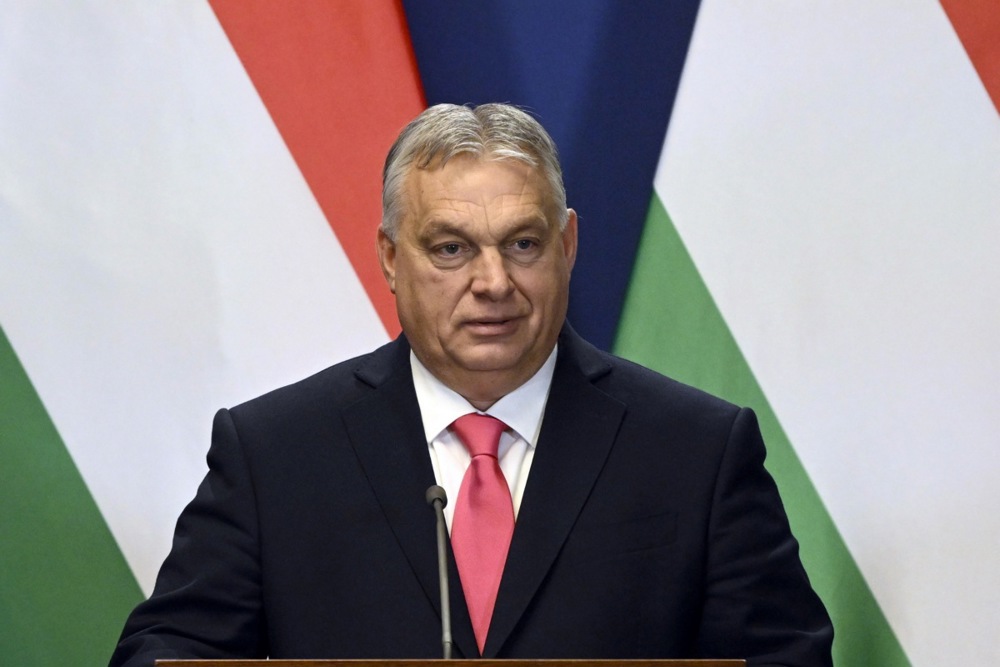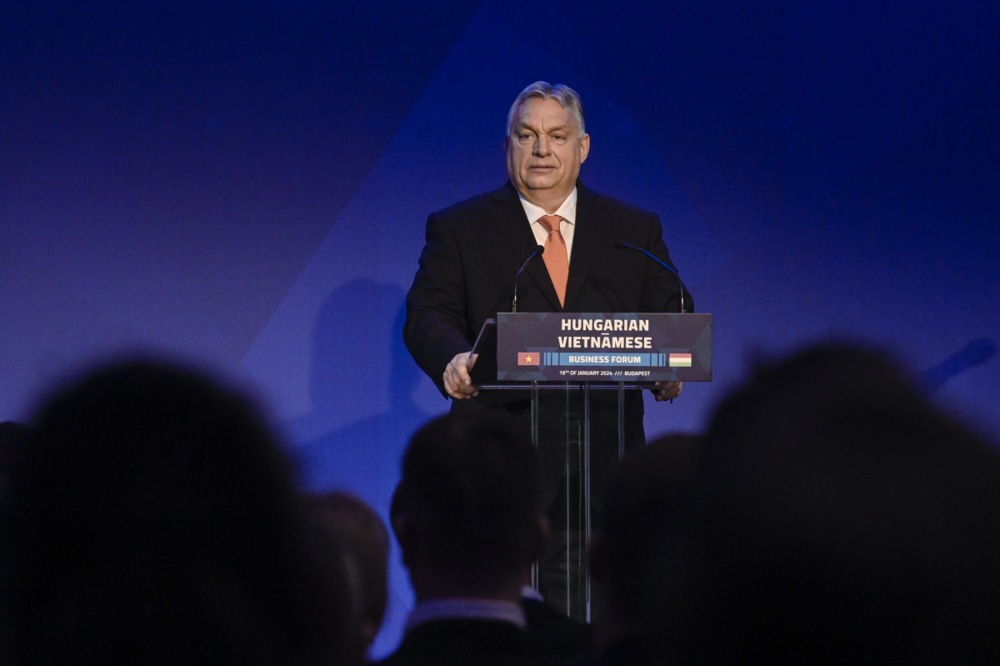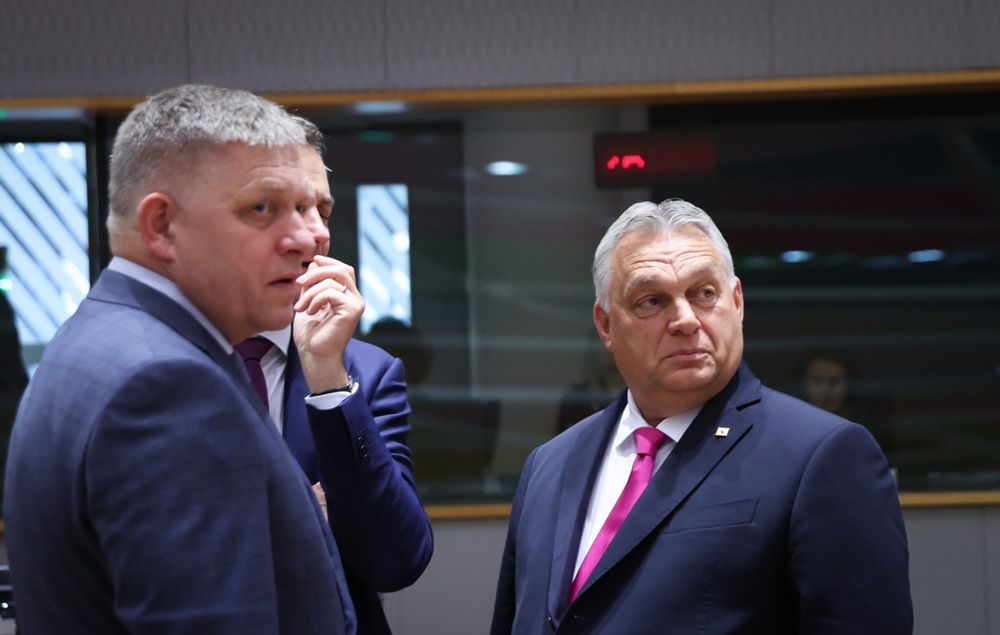All 27 leaders of the European Union on February 1 reached a deal on a €50 billion aid package for Ukraine.
Hungary’s Prime Minister Viktor Orbàn, who long opposed the proposal, was convinced to give his backing.
The President of the European Council, Charles Michel, shared the news on X: “We have a deal. #Unity All 27 leaders agreed on an additional €50 billion support package for Ukraine within the EU budget.
“This locks in steadfast, long-term, predictable funding for Ukraine. EU is taking leadership and responsibility in support for Ukraine; we know what is at stake.”
Political leaders from across the EU joined in celebrating the decision.
We have a deal. #Unity
All 27 leaders agreed on an additional €50 billion support package for Ukraine within the EU budget.
This locks in steadfast, long-term, predictable funding for #Ukraine.
EU is taking leadership & responsibility in support for Ukraine; we know what is…
— Charles Michel (@CharlesMichel) February 1, 2024
News of the deal came after Orbán was persuaded to relinquish his veto over the financial package by a small group of EU leaders before the official summit meeting began.
Prior to the gathering, Orban sat with European Commission President Ursula von der Leyen and Michel, Italian Prime Minister Giorgia Meloni, French President Emmanuel Macron and German Chancellor Olaf Scholz, to thrash out an agreement.
Later on, other leaders participated as well, including Belgian Prime Minister Alexander De Croo, whose country now holds the Presidency of the Council of the European Union, and Polish Prime Minister Donald Tusk.
In exchange for dropping his veto, Orbàn won concessions on annual reporting regarding the amount of money provided to Ukraine and, if necessary, a review within two years of the start of aid transfers.
The total sum for Ukraine is made up of €33 billion in the form of guaranteed loans extending until 2027 and €17 billion of non-repayable support, under a new instrument called the “Ukraine Reserve”.
The latter amount will consist of “extraordinary revenues held by private entities stemming directly from the immobilised Central Bank of Russia assets”.
The European aid is seen as vital for Ukraine, with the country struggling for cash for issues ranging from pensions to salaries to basic state expenditures.
Casual morning conversation before the #EUCO with @EmmanuelMacron @GiorgiaMeloni @Bundeskanzler @CharlesMichel and @vonderleyen . pic.twitter.com/eTnUH2jpcN
— Orbán Viktor (@PM_ViktorOrban) February 1, 2024
Following news of the agreement, Ukrainian President Volodymyr Zelenskyy thanked Michel and all the heads of state.
“Continued European financial support for Ukraine will strengthen long-term economic stability, which is no less important than military assistance and sanctions pressure on Russia,” he said.
Grateful to @CharlesMichel and EU leaders for establishing the €50 billion Ukraine Facility for 2024-2027.
It is very important that the decision was made by all 27 leaders, which once again proves strong EU unity.
Continued EU financial support for Ukraine will strengthen…
— Volodymyr Zelenskyy / Володимир Зеленський (@ZelenskyyUa) February 1, 2024
Ukraine’s Foreign Minister Dmitro Kubela said he was “grateful” and called it “a step of historic proportions”. He added that it demonstrated “that any talk of alleged ‘fatigue or waning support’ is simply false”.
Later in the afternoon, Orbán shared a video on the agreement. He sold it as a victory, claiming “no Hungarian money” will go to Ukraine and pointed to the introduction of a “control mechanism”.
Mission accomplished. Hungary’s funds will not end up in Ukraine and we have a control mechanism at the end of the first and the second year. Our position on the war in Ukraine remains unchanged: we need a ceasefire and peace talks. pic.twitter.com/vui5NxPzGw
— Orbán Viktor (@PM_ViktorOrban) February 1, 2024
In the previous summit in December, Orbàn blocked the €50 billion deal. Ahead of this latest gathering, secret documents had been leaked to the press that the EU planned to “hurt” Hungary, leading to the country’s outrage and accusations of “blackmail”.
Mráz Ágoston, director of the Hungarian think-tank Nezopont, told Brussels Signal: “Hungary has not been against the aid for Ukraine but it was important for Budapest that annual evaluating can be made.”
He called the incorporation of the added budget control mechanism “a Hungarian success”.
“Without Mr Orban, it would have not been possible,” he said.
“Nobody knows what will happen in this war within one year or even in the next weeks.”
He continued: “Beyond this European election [in June] is also an important dimension …
“With this compromise, after one year, the new European Parliament can also influence Ukraine aid.”





